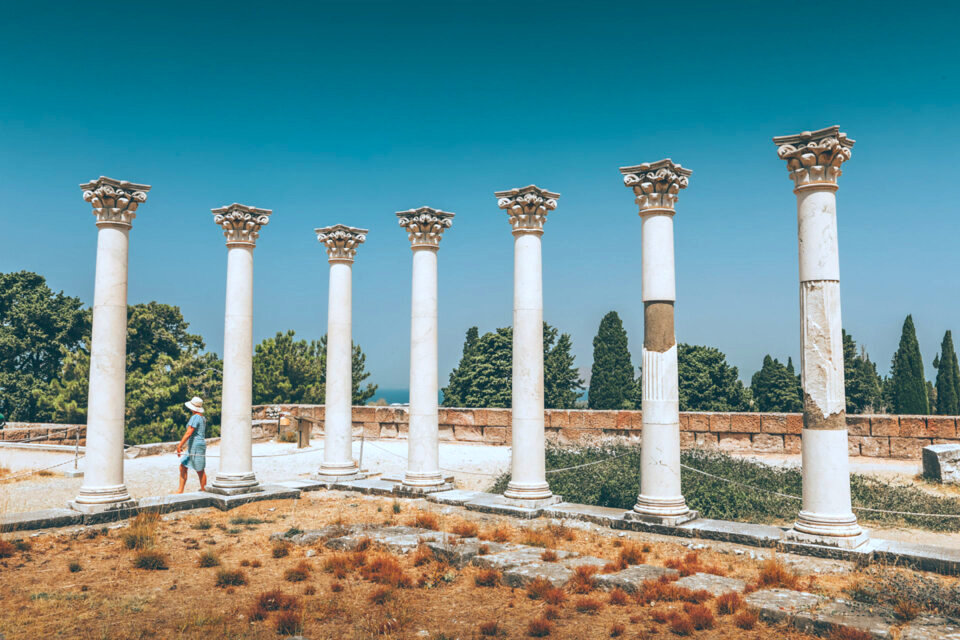
Today, most of us turn to the East and to life traditions there for ways to relieve ourselves of pain, heal trauma in our lives, and maintain balance. But Ancient Greece – which is so closer to home – holds dozens of secrets of wellbeing and health that very few know about.
To this day, medical doctors worldwide embark on their healing careers by vowing after completing their studies to abide by a code of ethics known as the “Hippocratic Oath”.
Very few know that this text of standards, which was the first to set the medical principles still followed today in the Western World, was named after Hippocrates, the father of modern medicine who was born on the Greek island of Kos thousands of years ago.
Besides the oath, to-be physicians also swear to the healing god Asclepius and to his daughters.
The Hippocratic Oath begins with this invocation:
“I swear by Apollo the Physician and by Asclepius and by Hygieia and Panacea and by all the gods .”
► Easy to Pick Greek Island(s) for Your Vacation
Who is Asclepius
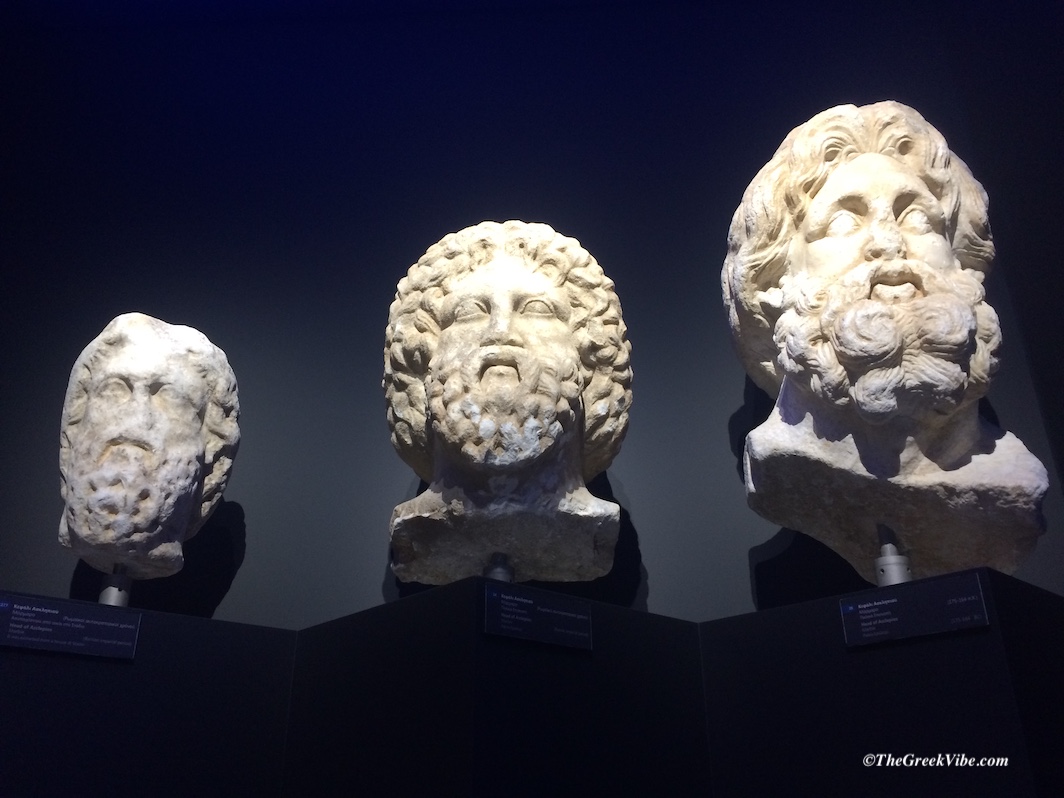
Asclepius is the Greek god of health and healing who was taught the secrets of his ‘art’ by his caretaker, Centaur Chiron, and by a grateful snake. Yes, a snake!
The ancient Greeks believed that snakes were sacred, wise and had healing powers. That’s why we always see Asclepius holding a rod with a coiling snake. The serpent represented healing and resurrection for the ancient Greeks and that explains why you can still see them on the emblems of doctor associations today.
So venerated was the snake that the Greeks even named one after Asclepius: its name “Lafitis” also known as the non-venomous “Aesculapian”.
These lovely critters were set loose at the founding of each new temple dedicated to Asclepius as protectors and for good fortune.
It’s also not by chance that Asclepius was the son of Apollo, the Greek god of light and harmony, and of princess Coronis. Myth has it the he was ‘nourished’ with the blood from snake-haired Medusa’s right vein which was therapeutic – the other was deadly.
► How Greeks Burn Livani or Incense and Why You Should Too
Secret of Greek Wellbeing: Science & Faith
What’s the difference between Hippocrates and Asclepius, you ask? Here too Ancient Greek wisdom responds holistically: Hippocrates represents diagnosis and treatment, Asclepius healing and recovery.
In other words, for complete wellbeing both medicine (a “manmade” science) and faith (a “divine” gift) are required to bring about balance and unity in body and mind. It is the Greeks after all who said: “Nous Ygieis en Somati Ygiei” (A Healthy Mind in a Healthy Body).
👉🏼 Find the best hotel deals for you
The Asclepions – Ancient Greek Healing Centers
Aware of this eternal truth – one that has been at the center of all life philosophies for centuries – the Ancient Greeks created dozens of “Asclepia” across the country, or to put it in today’s terms: wellness centers.
There were at least 300 Asclepions (healing temples) across Ancient Greece, including the first in Trikki, Central Greece near the city of Trikala, on Kos in the Dodecanese islands, and the most prominent, at Epidavros in Argolis, Peloponnese. The ailing of the ancient world flocked to these temples, where Asclepius was worshipped seeking to be mended of all their ills.
► How to Live Long and Happy Like a Greek
Asclepions – The Location
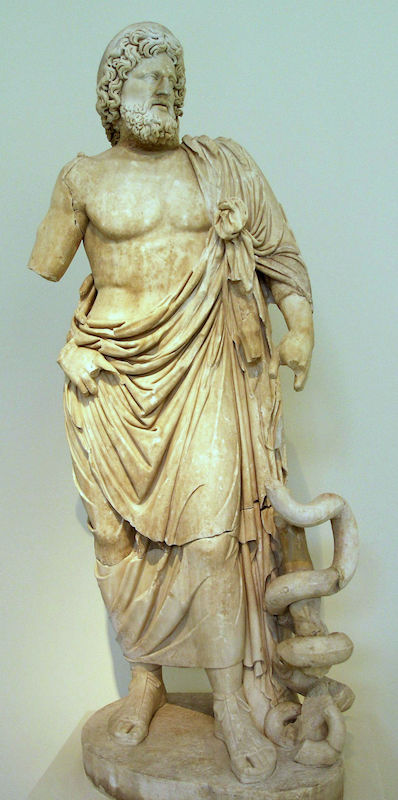
Unlike today, these healing sanctuaries were not built by chance. They were always erected outside residential areas at locations with strong positive energy vibrations conducive to “iasis” and calm.
These locations were mostly in forests, sheltered from the winds, isolated, with mild weather, no extreme temperatures or humidity. And that, my friends, explains why you won’t not find today remnants of Asclepions on the wind-ravaged Greek islands.
At the same time, these spaces of wellness were more like modern-day retreats or how our hospitals should be ideally.
The arcaded temples were made of white marble. They were spacious and large, with lush gardens and running waters, situated near thermal (sulfur) springs.
You can imagine why this would be healing: think of the wind ruffling the leaves, the running waters, the fresh crisp air, the pure white of the cool marble and the atmosphere of perfect health.
A visit today still brings this to mind. The temples were run by a higher priest and attendants known as “therapeutae”, which means “healers” in Greek or “therapists”.
The Treatment at Greece’s Asclepions
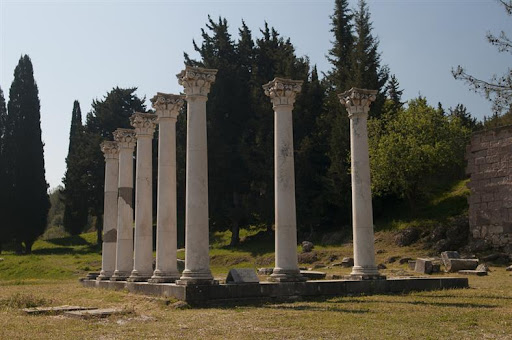
So what was the treatment like at these ancient Greek health centers? Very much like today, people would make a pilgrimage to the Asclepieia to be cured of their ailments whether of body or mind.
Upon arrival, you would be given a special herb-based cleansing diet. There would be no more wine drinking. After sunset and a day of fasting you would be guided to the rejuvenating thermal springs to clear your energy. From there, dressed in a white cloak (the color of purity) you would meditate (as a form of worship of Asclepius).
From there, off you go to the “abaton” – the most sacred area of the sanctuary. You would lay on the marble floor of the temple near the statue of Asclepius as surely, he would “visit” you in your sleep providing answers and guidance. Of course, healing wouldn’t be complete without the Aesculapian Snakes I mentioned above which also roamed freely in the temples sending out their healing energy. I should also add that there are accounts of dogs also playing a remedial role in the rituals – something I find completely natural.
By this time and thanks to the hallucinogenic herb drink offered, you would probably be in a state of deep relaxation ready to sleep.
At the break of day, you would share your dreams or visions with the “therapeftes” (from this Greek word we have the English “therapy”). These healers trained through experience gathering knowhow that was passed on from one generation to the next.
Together with your “therapefti” you would interpret the dreams and he would prescribe the treatment. It is not by chance that the English word “therapist” comes from “therapia” – Greek for treatment.
Much like our like a modern-day therapists or psychologists, therapeftes guided you through the steps of therapy and smoothened out any hard points.
It is clear therefore, that the Ancient Greeks believed sleeping relieved one of the conscious restraints of the awake mind, offering pure inner guidance and true awakening to the body’s needs.
👉🏼 Dream of visiting Greece? Start planning
The Importance for Greeks of Hygeia (Health)
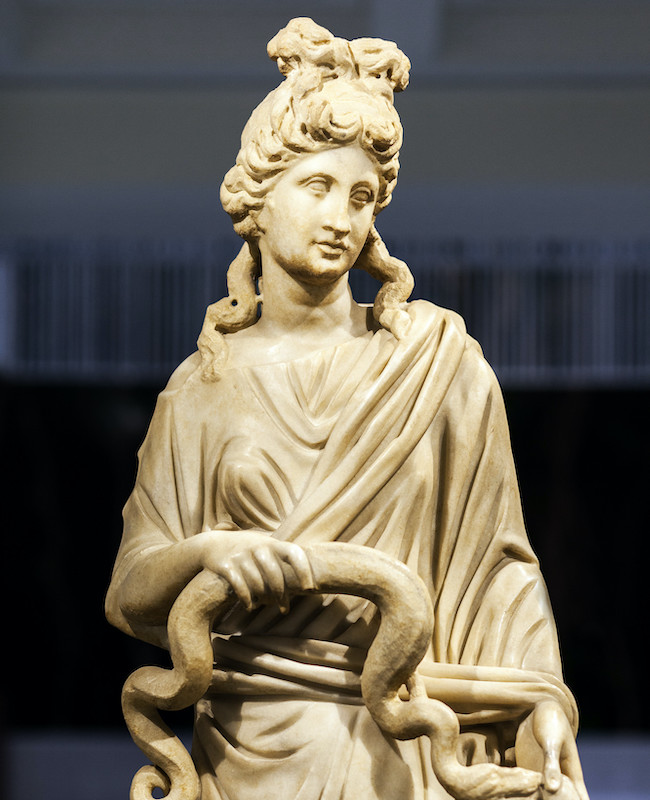
The Ancient Greeks had gods for everything they either feared, hoped for or treasured. Obviously, good health and wellness were among these and so they created a goddess for it: Hygeia.
Besides being the name of the goddess of wellbeing, the word “hygeia” in Greek means “health”.
And of course, myth tell us that Hygeia was either the daughter or wife of Asclepius.
To understand further the extent of the Greeks’ knowledge of the process of health and healing, one should look at Hygeia’s daughters, each of whom represent a part of what it means to be holistically in good health body and mind or to be in a state that Greeks call “eudaemonia”.
Hygeia had four daughters:
Iaso: the goddess of recovery. Today the word “iasis” means recuperation from illness
Aceso: the goddess of relief and repair – the healing process
Aegli: the goddess of shining health, today the word “aegli” means glamor
Panacea: the goddess of universal remedies and herbs, a Greek word we also use in English to mean a “universal cure or remedy for all difficulties or diseases”.
Where can I find Asclepius today?
Today all you need to do is look to the sky and there you’ll see Asclepius watching over us. His is the constellation Ophiuchus which means “the Serpent Holder” in Greek.
Stay tuned to The Greek Vibe for more on the Ancient Greek ways of healing, health and wellbeing.
👉🏼 Dream of visiting Greece? Start planning
♫I end today’s post about health and wellbeing with a song that soothes the soul … international Greek singer Nana Mouskouri performs “Ela Pare Mou tin Lypi” by the great Greek composer Manos Hadjidakis. The verse says it all… “Come take my sadness away“. Enjoy!
Be well, travel!
Enjoyed this Post? Share and Pin it!
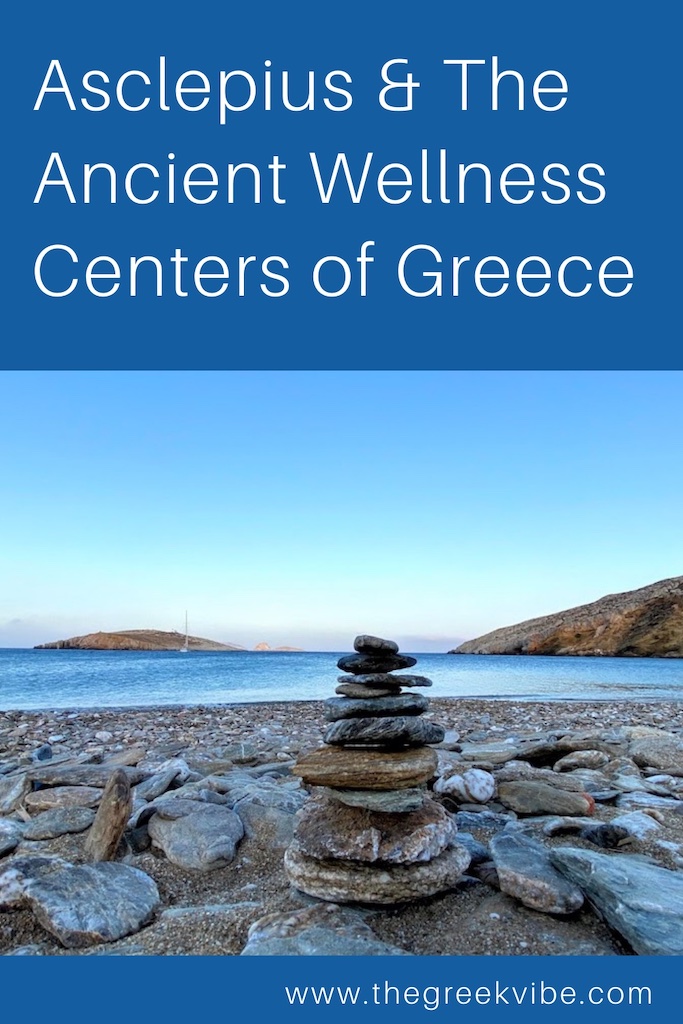

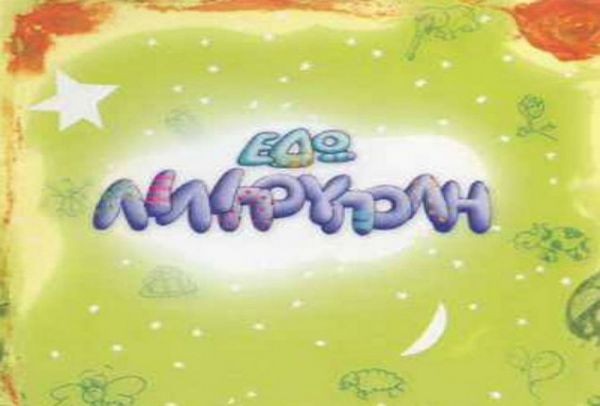
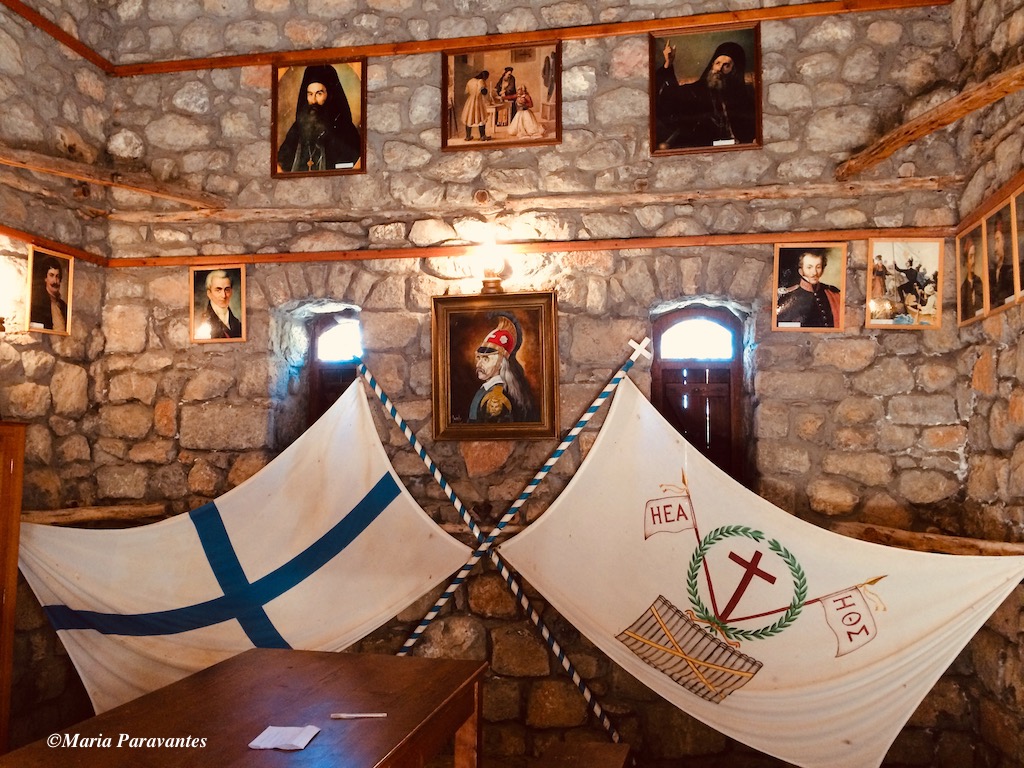
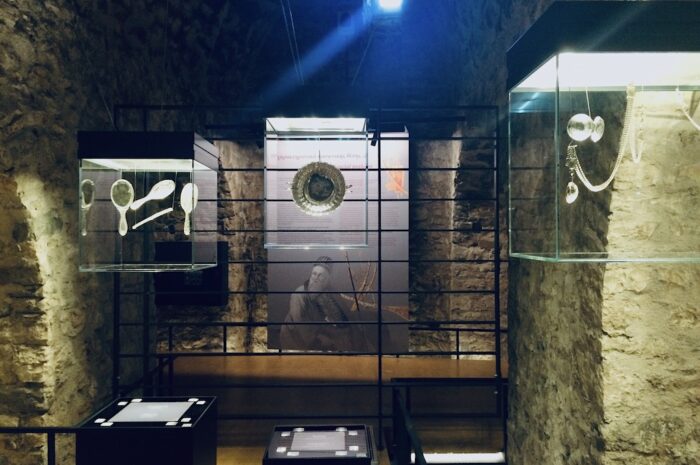
Hi, great article! Can you share some of your reference please? Thank you!
Thank you, Christine. It’s a while back that I wrote this but I have done extensive reading of works by Greek writers.
Your articles are simply amazing! Sad that these clever findings are not transformed to today’s world… In Hungary we have some fasting camps and sanatoriums but they are not that complex as the ancient Asclipions were… Also a small note most of the snakes in Greece are not venomous as far as I know except for some islands. But I’m curious in what ways were these creatures used.
Hello, Ioannis. Thank you for your kind words. Glad you enjoy reading The Greek Vibe. Correct, there is perhaps one or two snake species in Greece that are venomous. The “Aesculapian”, the snake named after Asclepius is a “Lafitis”, which is also non-venomous. Snakes were believed to have supernatural powers and were left to roam free in the Asclepions.
I am going to Athens in the near future and as well as appreciating all the city qualities it offers I am also going for some healing and well-being. I intend to have massages and this article was so appropriate and has added some destinations to my agenda. The only thing I am not going to embrace is the snakes…..they would not add to the relaxarion for me. I’m also going to ignore the Asclepions advice of eliminating the wine 🙂
Glad you enjoyed the read, Anita. Indeed, let’s keep the snakes as symbols only of well-being. There is so much more to write about concerning Greeks and health. Stay tuned!